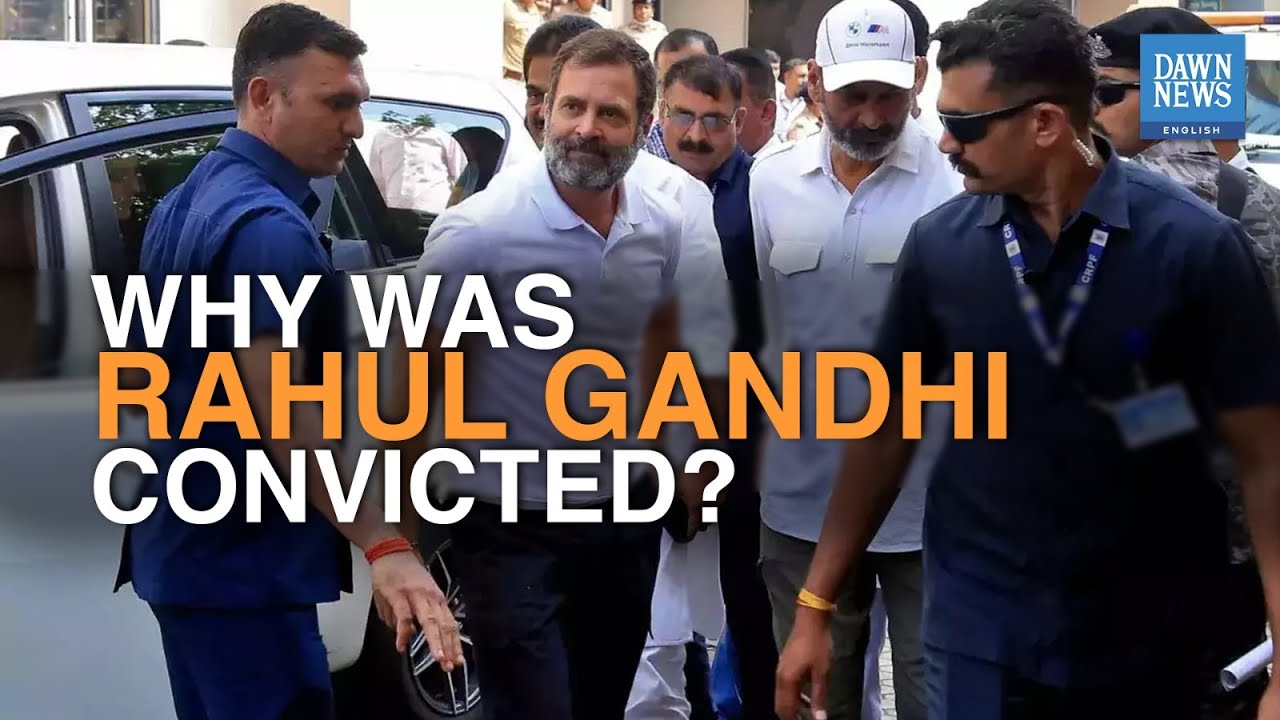Why Was Rahul Gandhi Convicted? | Tldr | Dawn News English
Unleash Your Creative Genius with MuseMind: Your AI-Powered Content Creation Copilot. Try now! 🚀
The recent sentencing and disqualification of opposition leader Rahul Gandhi from the Lok Sabha, the lower house of India's parliament, has sparked controversy and opposition protests. Gandhi was found guilty of making defamatory remarks about Prime Minister Narendra Modi's surname during an election rally in 2019. He has been sentenced to two years in prison, but the court has also suspended the sentence and given him 30 days to appeal.
Gandhi's party, the Congress, has strongly criticized the court's verdict, calling it erroneous and unsustainable. They have pledged to fight the disqualification both legally and politically. In response to his sentencing, the Congress-led opposition leaders organized a protest march in the capital, Delhi, under the banner "Democracy in Danger."
The Defamation Case and Allegations of Political Witch Hunt
The defamation case against Gandhi stems from his comments regarding the Modi surname. During his speech, he mentioned the surnames of Lalit Modi, an Indian cricket administrator who faced legal issues, and Nirav Modi, a businessman who was involved in a financial scandal. Gandhi questioned why individuals with the Modi surname were either absconding or facing legal troubles.
A defamation suit was filed against Gandhi, leading to his conviction and sentencing. However, the Congress party alleges that the action taken against him is politically motivated. They claim that Gandhi's demand for an investigation into allegations against the Adani Group, a prominent conglomerate in India, is the real reason behind his disqualification.
The Adani Group has been accused of stock manipulation and accounting fraud by the U.S. based short seller Hindenburg Research. Congress President Malik Arjun Kharge has alleged that Gandhi's case was previously with a judge who sought a stay, but when another judge took over, the matter was brought back to the same court, resulting in the judgment against Gandhi. The Congress party believes that this is an attempt to silence Gandhi and suppress his allegations of a nexus between Prime Minister Modi and the Adani Group.
Plans to Appeal and Fight Back
Despite his disqualification and potential bar from entering the parliament, Rahul Gandhi has made it clear that he will not back down from his questioning and demands. He has stated that even if he is permanently barred from the parliament, he will continue raising important issues and seeking answers.
The Congress party plans to move to the higher court next week and appeal for relief. They are also preparing for further protests against the government in the coming days, demonstrating their determination to challenge Gandhi's disqualification.
It is important to note that under a 2013 Supreme Court order, a lawmaker convicted in a crime and sentenced to two or more years in jail is disqualified from parliament with immediate effect. This means that Gandhi will not be allowed to contest elections until his sentence is suspended or he is acquitted in the case. With national elections approaching next year, this disqualification could have significant consequences.
Conclusion
The sentencing and disqualification of Rahul Gandhi have ignited a fierce political battle in India. The Congress party is vehemently protesting against what they perceive as a political witch hunt and unfair treatment. Gandhi's disqualification has not deterred him from continuing to raise questions and demand accountability from the government. The coming weeks will see the Congress party fighting both legally and politically to overturn the verdict and restore Gandhi's political standing.

Related Recaps
- From Nerd to Popular / Fantastic Makeover with Gadgets from TikTok
- Sequoia's Neil Shen to Entrepreneurs: "Follow Your Heart"
- Nick CAN’T defend the Mavericks as his NBA title pick any longer | What’s Wright?
- Jeannie Trades Her Powers For Love | I Dream Of Jeannie
- Packers Injury Updates! Jaire Alexander, Aaron Jones, Christian Watson